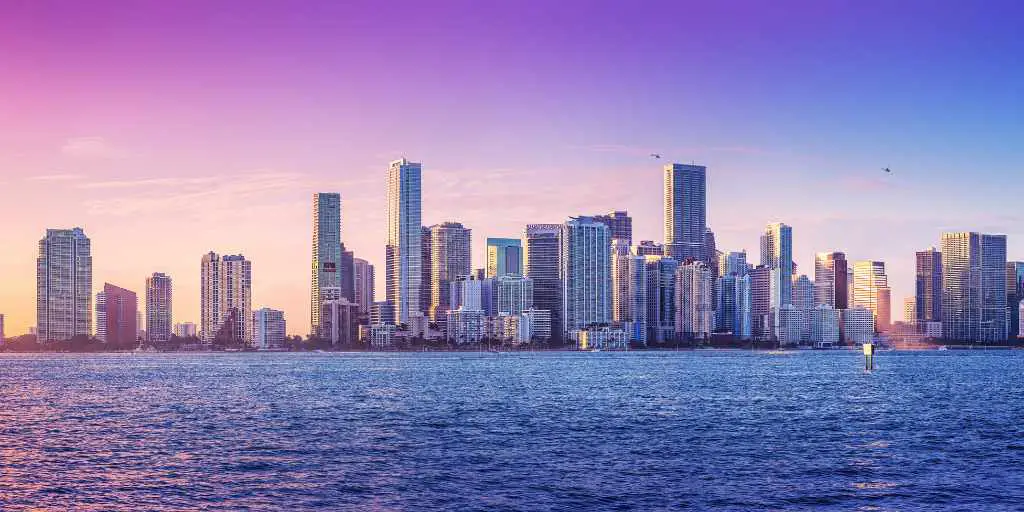At first glance, bartending jobs in Pennsylvania probably don’t look too lucrative. The average salary for a bartender in the Commonwealth of Pennsylvania is well below $30k. However, it’s the tips that really bring home the money, and it’s a fantastic way to socialize and enjoy the nightlife.
Becoming a bartender in Pennsylvania requires more than just a job application. By state law, you have to complete the RAMP server/seller training course within six months of hiring and you have to be at least 18 years old to serve alcohol.
Bartending isn’t a traditional serving role, either. Just completing RAMP is not going to make you an effective bartender. The job requires a high degree of social skills and a thorough knowledge of alcohol, drink mixes, and consumers’ various and ever-changing desires.
To get certified online, state-approved RAMP certification is available from 360Training.
Who Can Serve Alcohol in Pennsylvania?
You have to obtain your Pennsylvania Bartender License, but don’t worry, that’s not a separate certification from RAMP. RAMP is often called a Pennsylvania Bartender License, mostly because most people wouldn’t immediately know what RAMP is.
You also have to be at least 18 years old. Some states require you to be 21, but 18 is fine in Pennsylvania. That’s all you need to serve alcohol in Pennsylvania. But, if you want to bartend, that’s entirely different since it’s a far more social and complicated way of serving alcohol, for obvious reasons.
Suppose you have no experience bartending or have never taken a bartending course of any kind. In that case, no one will hire you to tend bars at their establishment unless you’re a family member or starting your own business.
If you already have the social skills down, the rest is just about as hard as getting your driver’s license, depending on how you look at it.
- RAMP
- Driver’s License
- Strong social skills
- At least a basic knowledge of alcoholic drink recipes
- Quick on your feet
- Ability to stand for most of the night
Those are your basic requirements for serving alcohol in Pennsylvania or serving alcohol in most states for that matter—even though most states will have their own versions of RAMP.
Does Pennsylvania Require a Bartender License?
Pennsylvania does require a bartender license, but the state’s bartender license is the same thing as RAMP. Once you complete RAMP training, you’ll be certified to sell alcohol in the state of Pennsylvania, and that’s all you need to be a bartender.
However, every little nugget of information you gather will help. “Knowledge is power”, as the saying goes, Pennsylvania’s site—Pennsylvania Liquor Control Board—is full of pertinent information.
- Wine permits and expanded permits
- Employment opportunities throughout the state
- A search engine for licenses
- Opportunities to communicate with and join the Pennsylvania Liquor Control Board
- A list of server and seller online training providers
- Public meeting times and places for PLCB members
- RAMP training
- Ordering information
- License and ID card access
- Annual reports
- License compliance programs
- LOOP program
None of those things are essential for becoming a bartender in Pennsylvania but the more you know, the better off you will be as you make career choices down the road. Maybe you have designs on being a bartender and using that knowledge to open your own bar one day. You never know.
What is RAMP?
RAMP, Responsible Alcohol Management Program, is a five-part program, and once you have completed all five, you will receive your certificate of completion. The five steps of the program include.
- Management training
- Server and seller training
- New employee orientation (pretty standard for most jobs)
- Signage
- Affidavit request for your RAMP certificate
Management training may not make sense at first but when you think about it, being a bartender means being responsible for managing personnel and a system for making and delivering drinks with speed dialled up to 90.
Server and seller training is pretty standard fare for most retail establishments. Although retail and bartending are not really the same, the fundamentals are. This training is highly beneficial if you are young and new to the workforce.
Plus, server and seller training covers all aspects of selling alcohol, including the dirtier aspects of it. For instance, telling the difference between a fake ID and a real one or being wise enough to know the person that just sidled up to the bar is not 22 years old, despite what their license says.
Then there are the other little cherished moments of bartending, such as dealing with astonishingly drunk individuals who have decided to create a scene or someone who is dangerously inebriated—far beyond the point where you should serve them more alcohol.
To get RAMP certified, state-approved training is available from 360Training.
How Much Do Bartenders Make Hourly in Pennsylvania?
The average hourly rate for a bartender in Pennsylvania is $10.49 per hour and $21,815 annually. If that sounds pretty pathetic, it is. However, anyone with industry experience will be the first to tell you that a bartender does not survive on hourly wages.
Tips are where the real money is at, and a good bartender at a popular establishment has the potential to bring home a ton of money. There’s no real average here either because the differences from bar to bar and bartender to bartender are often dramatic.
A bar in a tiny Pennsylvania community with a population of 6,489 will not bring in the number of customers that an establishment such as Top Golf will or a bar located in the beating heart of Philadelphia.
How you perform as a bartender makes a difference as well. Experience in drink mixes is a must, even if you must learn at home or take bartending courses.
Bottom line
Becoming a bartender in Pennsylvania isn’t the easiest thing in the world, and it’s not because you have to go through RAMP training. RAMP is probably the easiest part of all.
The hard parts are learning how to bartend, socializing with crowds that will become increasingly inebriated as the night goes on, and getting the drink mixes perfect for each customer. If you get those parts down, RAMP will be a breeze.
If you’re interested in bartending in other American states, we’ve written an article about bartending requirements across America here.





